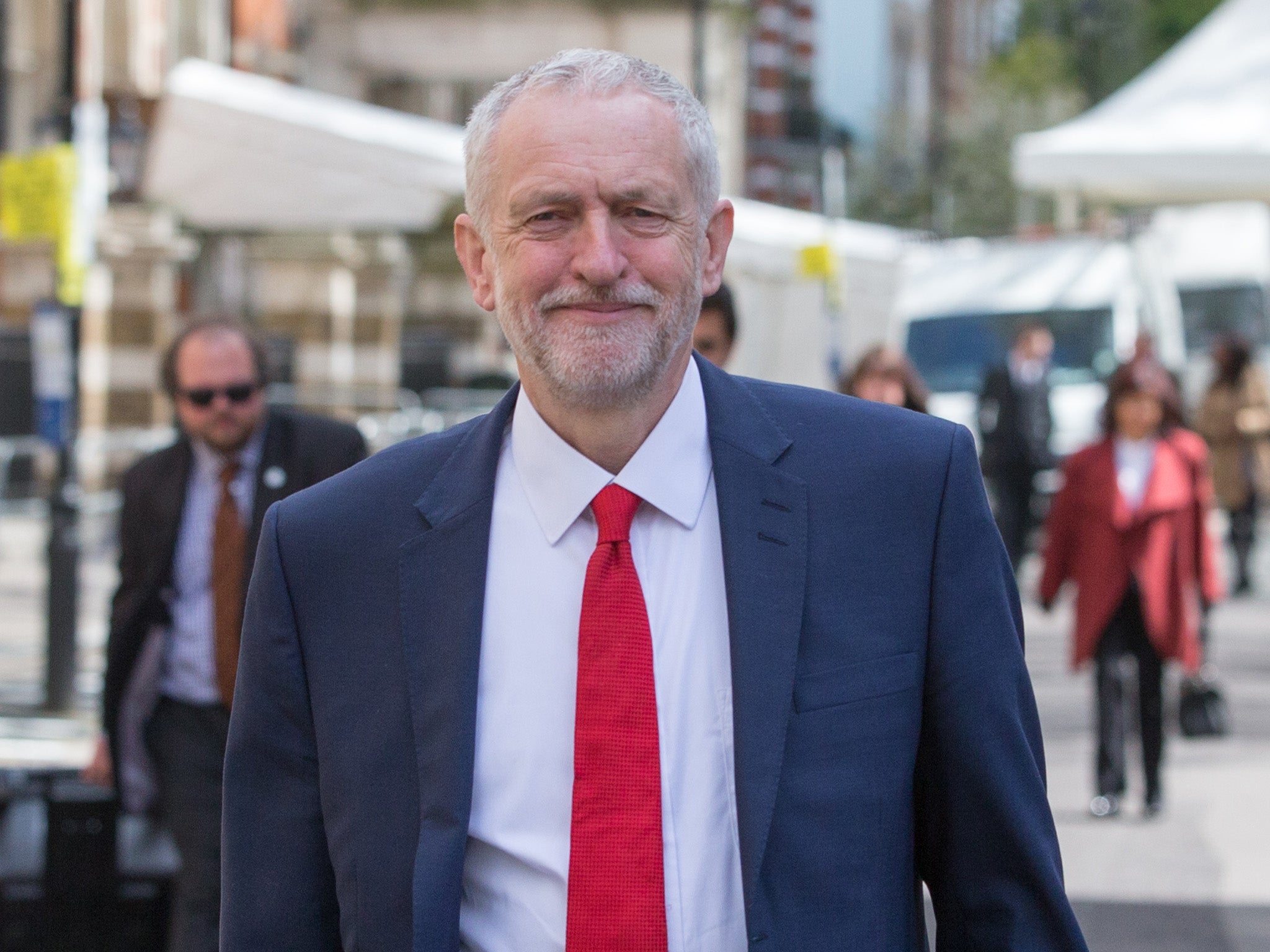Local elections 2016: Jeremy Corbyn faces key test in 'Super Thursday' election
Labour is braced for potential losses in local, Scottish, Welsh and Northern Irish elections

Jeremy Corbyn has suffered an early wobble in his first electoral test as Labour leader after his spokesman was forced to "clarify" comments in which he said he did not intend to say the party would lose no seats in the local elections.
Mr Corbyn surprised MPs on Tuesday when he said at a campaign event that the party was “not going to lose seats”.
Independent experts and internal party polling have estimated Labour could lose somewhere in the region of 100 to 150 council seats in England.
Asked about the comment, Mr Corbyn’s spokesman said it had been “misinterpreted”.
“What he said was he would make no prediction about the number of seats [that would be] won or lost in the local elections. We’re not in the business of losing seats and we’ll be fighting to win as many as possible,” he said.
Challenged over the exact wording of Mr Corbyn’s comment, which was explicit that the party would not lose seats, the spokesman said: “I’m telling you what he was intending to say.”
While the party could lose seats in the English council elections, Mr Corbyn will be boosted if Sadiq Khan wins the London mayoralty. The Labour candidate is polling well ahead of his Conservative rival Zac Goldsmith, with an Opinium poll on Tuesday giving him a nine-point lead.
However, Labour MPs are also concerned that the party could perform badly in both the Welsh and Scottish Assembly elections.
The party’s electoral performance is likely to have a bearing on whether rebel Labour MPs decide to launch a leadership coup against Mr Corbyn, with reports suggesting a challenge could emerge after the EU referendum in June.
What are the May 5 elections?
The devolved governments – the Scottish Parliament, Northern Ireland Assembly, Welsh Assembly, and London Assembly are all being elected.
The Mayor of London is also elected, as are some local councils in England, and police and crime commissioners.
English councils to watch in the 2016 elections
Show all 12Why are these elections important?
The Mayor of London election is arguably the highest directly elected office in the UK with a personal mandate. Whichever party wins it not only gets to run the capital but also gains a high-profile figure.
The devolved elections are important to the places they take place in because a lot of important services like health and education are devolved the Scottish, Northern Irish, and Welsh governments – they’re not run from Westminster.
The local elections are of course important to people’s local communities – they decide who runs local councils. But more importantly for national politics, they’re often seen as a barometer of opinion mid-election cycle.
Why is everyone talking about Jeremy Corbyn?
The Labour leader Jeremy Corbyn is under attack by internal opponents within his own party – and a bad showing in these elections could give them an opening to try and get rid of him.
Will a bad showing by the Conservatives hurt David Cameron the same way?
Probably not – he’s stepping down anyway soon, and has less organised resistance against him in his own party who would look to exploit a defeat.
He has however personally associated himself with his party’s campaign in London which has had to deny accusations of “racism” against Labour’s Sadiq Khan.
What are the big things to watch out for?
In Scotland, the SNP are going to come first – but the battle for second place and third place between Labour and the Tories is looking very close. A third place finish for Labour in its former heartland would be humiliating and symbolic.
In Wales, the question is whether Labour can hang on as a majority government – or whether it will have to do a deal with another party to stay in power. They will likely come first there, however.
In London, taking back the mayoralty would be a big win for Labour – they’ve been out since Ken Livingstone lost in 2008.
How many seats Labour loses or gains in the local council elections will also be important – but this is harder to interpret objectively and everyone is going to be spinning the result to try and further their interests.
The Northern Ireland political system operates in a bit of a bubble so its result won’t affect the UK-wide parties in any big way.
If the SNP win will Scotland go independent?
No, but there’s a good chance the might hold another independence referendum, which they might win in future.
Subscribe to Independent Premium to bookmark this article
Want to bookmark your favourite articles and stories to read or reference later? Start your Independent Premium subscription today.

Join our commenting forum
Join thought-provoking conversations, follow other Independent readers and see their replies